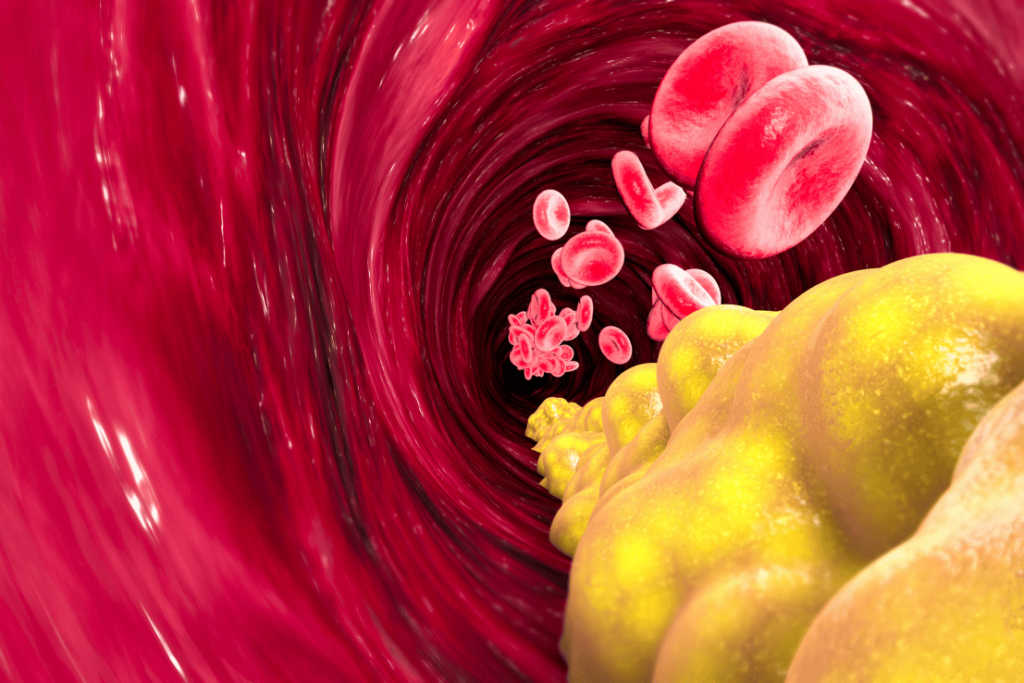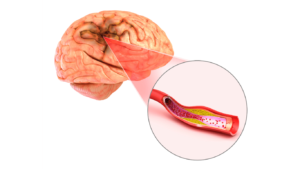Introduction
High cholesterol is a prevalent health concern in the United States, affecting nearly 94 million adults, as reported by the Centers for Disease Control and Prevention (CDC). Despite its prevalence, high cholesterol often lurks silently, devoid of noticeable symptoms. In this article, we look into the intricacies of what causes high cholesterol, its impact on health, and proactive measures to combat this condition.
The Essence of Cholesterol
Cholesterol, a lipid produced by the liver, plays a pivotal role in cell membrane formation, hormone synthesis, and vitamin D production. Transported through the bloodstream by lipoproteins, cholesterol exists in two major forms: low-density lipoprotein (LDL) and high-density lipoprotein (HDL). While LDL is often termed "bad cholesterol" due to its role in arterial plaque buildup, HDL is considered "good cholesterol" for its function in removing excess LDL from the bloodstream.
The Silent Menace
High cholesterol is insidious, typically manifesting without discernible symptoms. Routine cholesterol screenings become paramount, especially for individuals at risk. Factors such as diet, smoking, obesity, and genetics contribute to elevated cholesterol levels. Familial hypercholesterolemia, a genetic disorder, can exacerbate this condition, leading to heightened cholesterol levels and increased health risks.
Understanding LDL and HDL
LDL, the carrier of cholesterol to arteries, can result in plaque buildup, narrowing arteries and increasing the risk of heart attacks or strokes. Conversely, HDL aids in returning LDL to the liver, preventing plaque accumulation and reducing the risk of blood clots, heart disease, and stroke.
Triglycerides: Another Culprit
Triglycerides, distinct from cholesterol, serve as an energy source. Excessive calorie intake converts into triglycerides, stored in fat cells and circulated through the bloodstream by lipoproteins. Elevated triglyceride levels pose risks of heart disease and stroke, emphasizing the importance of regular blood tests to measure cholesterol and triglyceride levels.
Screening and Diagnosis
For individuals aged 20 and above, routine cholesterol screening is recommended every 4 to 6 years. A lipid panel provides a comprehensive overview, including total cholesterol, LDL cholesterol, HDL cholesterol, and triglyceride levels. Diagnosis hinges on the balance between high LDL and low HDL levels, with personalized considerations.
Treatment Approaches
While high cholesterol doesn't mandate immediate medication, lifestyle changes play a pivotal role. Dietary adjustments, emphasizing lean proteins, high-fiber foods, and omega-3-rich options, form the foundation. Exercise, smoking cessation, and weight management contribute significantly. In cases where medication is prescribed, statins are commonly recommended to inhibit cholesterol production. Other medications and combination therapies tailored to individual needs may also be considered.
Holistic Management and Home Remedies
In tandem with medical interventions, holistic lifestyle adjustments play a crucial role. Maintaining a balanced diet low in cholesterol and saturated fats, regular exercise, moderate alcohol consumption, and avoidance of tobacco contribute to overall well-being. Some advocate for herbal and nutritional supplements, yet their efficacy lacks conclusive evidence, necessitating consultation with healthcare professionals.
Genetic Factors and Beyond
While genetic predispositions are beyond control, proactive management of lifestyle factors remains paramount. A nutritious diet, moderate alcohol consumption, weight control, regular exercise, and adherence to medical advice collectively contribute to mitigating the risks associated with high cholesterol.
Conclusion
In conclusion, high cholesterol is a multifaceted concern that demands proactive management. Regular screenings, lifestyle adjustments, and, when necessary, medical interventions are integral components of maintaining optimal cholesterol levels. By unraveling the complexities surrounding high cholesterol, individuals can empower themselves to make informed decisions, fostering long-term cardiovascular health.







